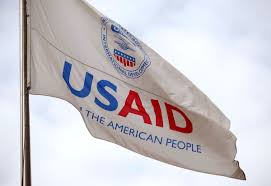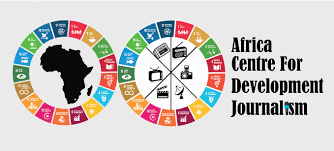Why US Cuts to African Aid May not be an Easy Win for China
Donald Trump’s spending freeze may look like an open goal, but Beijing could still struggle to take advantage of the situation

US President Donald Trump’s freeze on foreign aid will likely create a vacuum in Africa that China can exploit, but diplomatic analysts say it may not be an easy win for Beijing.
The United States has provided billions of dollars in foreign aid to life-saving programmes in Africa for decades – and in the process bought itself strong influence. But that was before Trump decided to overhaul the US Agency for International Development (USAID) and suspend foreign aid.
Across Africa, thousands of workers in the US-funded healthcare programmes are now being placed on unpaid leave.
Do you have questions about the biggest topics and trends from around the world? Get the answers with SCMP Knowledge, our new platform of curated content with explainers, FAQs, analyses and infographics brought to you by our award-winning team.
In Kenya, more than 30,000 healthcare workers, including doctors and nurses that work under US President’s Emergency Plan for Aids Relief (Pepfar) – a programme credited with saving more than 25 million lives – are facing job losses.
Pepfar aims to reduce the spread of HIV and Aids in more than 50 countries by providing millions of dollars for prevention, treatment and research.
Charlie Robertson, an emerging markets economist and author of The Time-Travelling Economist, said Trump’s suspension of foreign aid was a “huge gift to China”.
Robertson estimated that USAID flows last year were equivalent to 51-83 per cent of government revenues in South Sudan, Sudan and Somalia – and equivalent to about 10 per cent of revenues in another four African countries.
He said that Elon Musk, the billionaire behind the White House spending freeze, “is going to succeed in cutting government spending, but in Africa more than the US”.
USAID has helped to fund healthcare, education and human rights projects, but rarely infrastructure such as roads and railways – which has been a major focus of China’s Belt and Road Initiative.
Washington is by far the largest source of foreign aid, providing more than US$6.5 billion in humanitarian aid to sub-Saharan Africa last year, according to USAID.
Mark Bohlund, a senior credit research analyst at REDD Intelligence, said the US aid cuts gave China an opportunity to increase its influence and goodwill, but he said the world’s second-largest economy was only 10th in the list of donors, providing an estimated US$5-8 billion in 2022.
“Chinese grants given to African countries are likely to continue to be smaller than extended loans,” he added.
He said the US aid cuts could allow China to take a larger role by increasing the share of the Forum on China-Africa Cooperation (FOCAC) pledges disbursed as aid rather than loans and investment.
However, China cannot match the US in terms of health experts and medical infrastructure, according to Michael Chege, a political economy professor at the University of Nairobi.
Chege said Pepfar had been successful in preventing the spread of HIV/Aids and helped to save millions of African lives, while “China’s advantage is in building big infrastructure [such as] roads and railways, and these come in loans not grants”.
Carlos Lopes, a professor at the University of Cape Town’s Nelson Mandela School of Public Governance, said Trump’s decision to reduce foreign aid – especially in Africa – might not dramatically alter the continent’s economic fortunes, but it would have social and geopolitical consequences.
“This creates a vacuum that China can and likely will exploit,” Lopes said.
He said China’s approach in Africa had been strategic and long term: investing in infrastructure, offering loans, and securing natural resource deals, but also responding to countries’ imperatives.
“With less American engagement, African countries might find themselves increasingly drawn into China’s sphere of influence,” Lopes said.
But this did not mean that China would automatically win, according to Ovigwe Eguegu, a policy analyst at Beijing-based consultancy Development Reimagined.
China’s equivalent of USAID is the China International Development Cooperation Agency (CIDCA), launched in 2018.
Eguegu said the international development philosophies of both countries were different, and “China’s approach to international development cooperation is trade-oriented, aid plays a minor role”.
He added that the scope and scale of USAID’s involvement in Africa far exceeded that of CIDCA, “so it really isn’t a competition. Beijing can’t simply step in to fill gaps.”
Some of the work that USAID engaged in – such as sponsoring political civil society organisations – would go against Beijing’s policy of not interfering in other countries’ internal affairs. “I don’t see China stepping in under CIDCA to fill programme funding gaps caused by the withdrawal of USAID,” Eguegu said.
Where emergency humanitarian aid was cut, African countries might call on other partners, for example, the European Union or Turkey, for help. “So Washington’s loss doesn’t automatically translate to Beijing’s gain,” Eguegu said.
This article originally appeared in the South China Morning Post (SCMP), the most authoritative voice reporting on China and Asia for more than a century.













